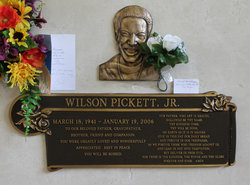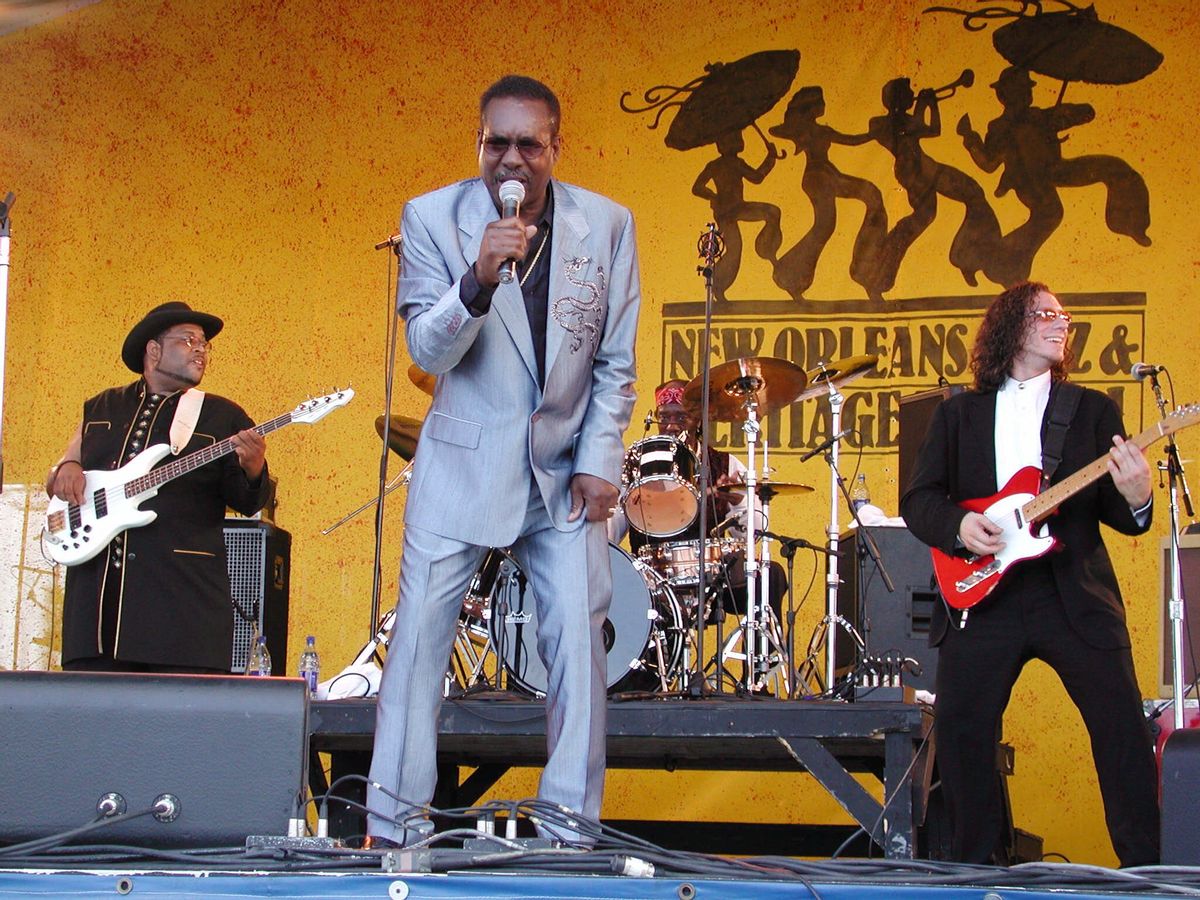 IT WASN’T UNTIL my toddler played King Kong with a metal casket gurney that it hit me: mausoleums are not made for field trips.
IT WASN’T UNTIL my toddler played King Kong with a metal casket gurney that it hit me: mausoleums are not made for field trips.
I had promised my eighteen-month old, Walter, we’d be on our way right after paying respects to soul music’s most passionate voice and Louisville’s most overlooked grave. Following this quick detour we’d check out all the giraffes and apes and bears he could stomach.
You see, Wilson Pickett was buried near the zoo.
This trip was something I planned for over a week, which is a Normandy Invasion-level of forethought in a stay-at-home parent’s world. I had decided it was never too early for kids to learn about soul music and elephants. I would knock both out in one morning. Needless to say, the boy whose passion in life involves eating sand was only impressed by one.
Evergreen Cemetery butts against Preston Highway, sandwiched between the airport and Male High School—Hunter S. Thompson’s alma mater. The cemetery’s massive stretch of land displayed a lot of grey sky thanks to a population of young trees. The gates had just opened for the morning so the only other people on the grounds were gravediggers operating backhoes and trucks.
Pickett’s mausoleum stood clustered among a few similar stone buildings at the farthest end of the property. Upon first glance, its stone pillars and lack of windows make the mausoleum look more like a government office building. Slightly more cheerful than the DMV. Unlike the DMV, its single, open room was empty and silent when Walter and I entered. The first thing I noticed was how calming the white marble walls were with all the light flowing in.
Those walls were dotted with brass grave markers, many decorated with flowers and mementos. Pickett’s was so subtle it took searching to locate. His plot was along the left hand wall, couched between similar name plates. Wilson Pickett’s final resting place made no mention of his hit records or the thousands of people he thrilled. Not even an apology for appearing in Blues Brothers 2000.
There was only an understated bronze bust of the soul pioneer—a youthful, smiling likeness.

WILSON PICKETT, JR
MARCH 18, 1941 – JANUARY 19, 2006
TO OUR BELOVED FATHER, GRANDFATHER, BROTHER, FRIEND AND COMPANION. YOU WERE GREATLY LOVED AND WONDERFULLY APPRECIATED. REST IN PEACE. YOU WILL BE MISSED.
I held my squirming son in my arms and pointed. “This guy right here,” I said. “Created soul music. A lot of people will argue, but don’t listen. Wilson Pickett put together gospel and R&B and rock and pretty much invented soul music.” We admired his tomb another second. “This is important. You need to know this.”
Walter let loose a pained yowl that commanded I release him to the wild.
I would have to wait until he was older to explain Pickett’s Zelig-like musical career. The man wasn’t of a single city or scene like, say, Otis Redding or Smokey Robinson. He was the voice of red dirt southern soul, bouncing around from Stax Studios in Memphis, to Alabama’s Muscle Shoals, to American in Memphis.
He left a trail of hit records, including “In the Midnight Hour,” “Mustang Sally,” and “Land of 1,000 Dances.”
“Wicked” Wilson Pickett also left a trail of trouble. He was known to be difficult to work with and had substance-abuse problems. He was obsessed with guns. Pickett was even sentenced to a year in prison after driving drunk and hitting a pedestrian in 1993.
“That’s kind of soul music as a whole. Ridiculous highs and awful lows,” I said, more to myself than Walter, who had wandered from sight. “That’s kind of life as a whole.”
Walter remained unimpressed. After only a few minutes he had plucked silk roses from low graves, removed an American flag from another and left a trail of broken crackers across a church pew. Had he been proficient with a lighter, I had no doubt there’d have been a bonfire somewhere.
Wilson Pickett was buried alongside his mother, Lena. Rumor had it Pickett abandoned his childhood home in Alabama to escape her abuse at age fourteen. A move to Detroit, to be near his father, began Wilson’s singing career.
Before Lena’s death, Wilson was known to frequent Louisville, where she had relocated. It’s safe to say the Picketts must have found a way to forgive one another. Aside from buying one of those broken heart “Best Friends” lockets, I can’t imagine a stronger sign of forgiveness than choosing to be buried beside someone.
Pickett’s grave marker was decorated with a simple white flower and a colorful silk bouquet. Red, yellow, orange, purple. Fiery and alive, like his music. There was a greeting card taped beside it. The cover featured two empty beach chairs and the inscription, “I Miss You.”
Inside, in delicate cursive, someone wrote:
LOVE YOU FOREVER.
YOUR OTHER HALF,
GAIL
Gail, I later discovered, was Pickett’s fiancée when he died of a heart attack. Gail must have visited recently. She must still be in love.
I closed the card and considered how strong her love must have been. I remained impressed until a thick metallic clang echoed through the mausoleum. Walter had knocked over the aforementioned foldable aluminum gurney. By the time I rushed over, he was joyfully spinning the hard rubber tires. “Come on,” I said, setting the gurney back up. “Let’s go see the alligators or something.”
We headed off to the zoo, and I was disappointed. My aim was to teach Walter about soul music, but he was too busy being a kid. Exiting onto Preston Highway under the overcast sky, I realized maybe I taught him more about soul than I suspected.
Toddlers are in a constant stage of absorption. Walter is always repeating things I don’t think he overhears, like curse words and Guy Fieri catchphrases. Here in a single marble room was a great place to absorb the definition of soul music. Wilson Pickett’s grave was the intersection of love and death and forgiveness.
Dissect any soul song from Pickett, to Aretha Franklin, to Al Green and you will find at least one of those three elements at its core.
Hopefully, Walter will remember.
Hopefully, he will also remember that gurneys are not toys.



Shares